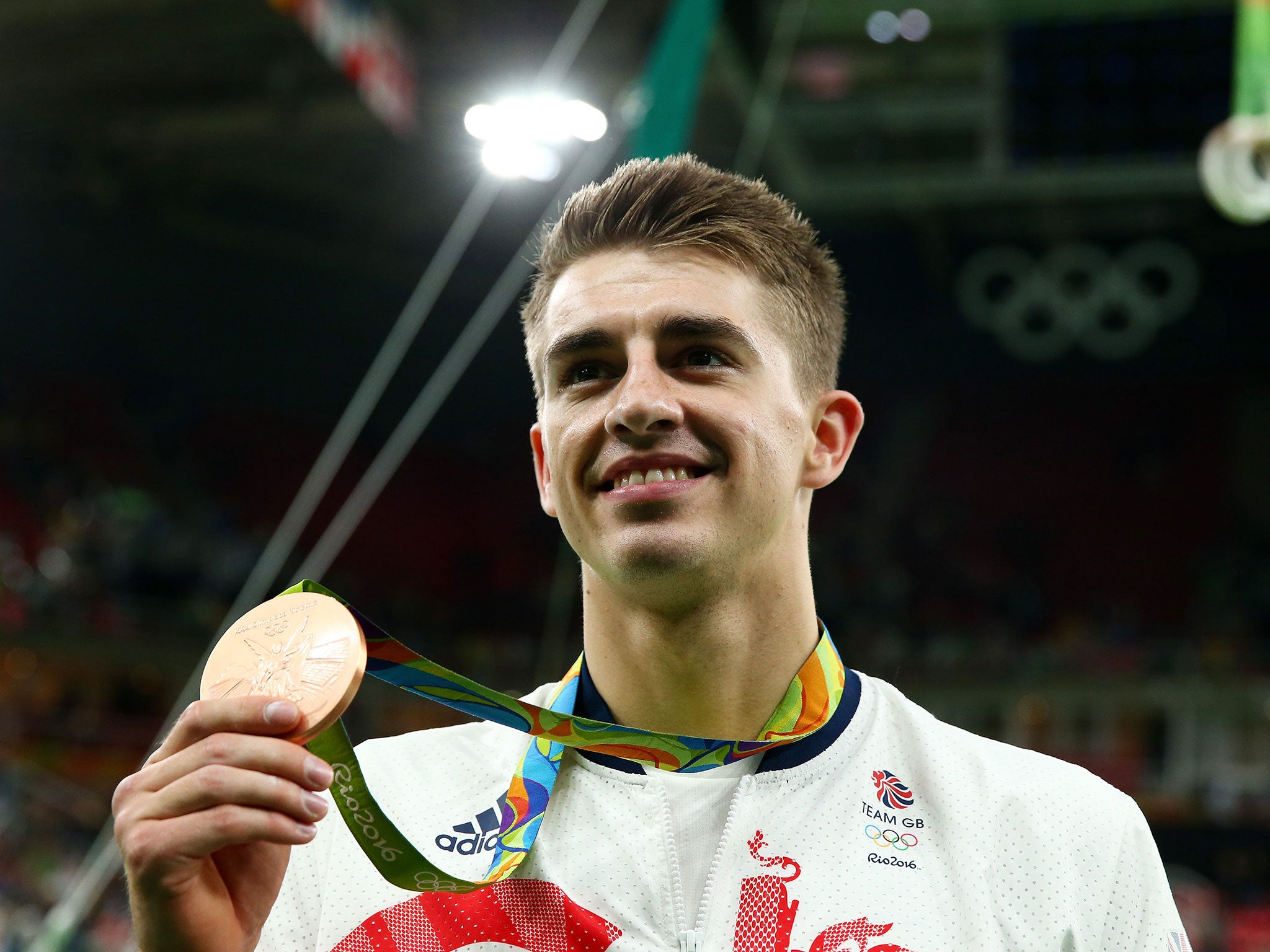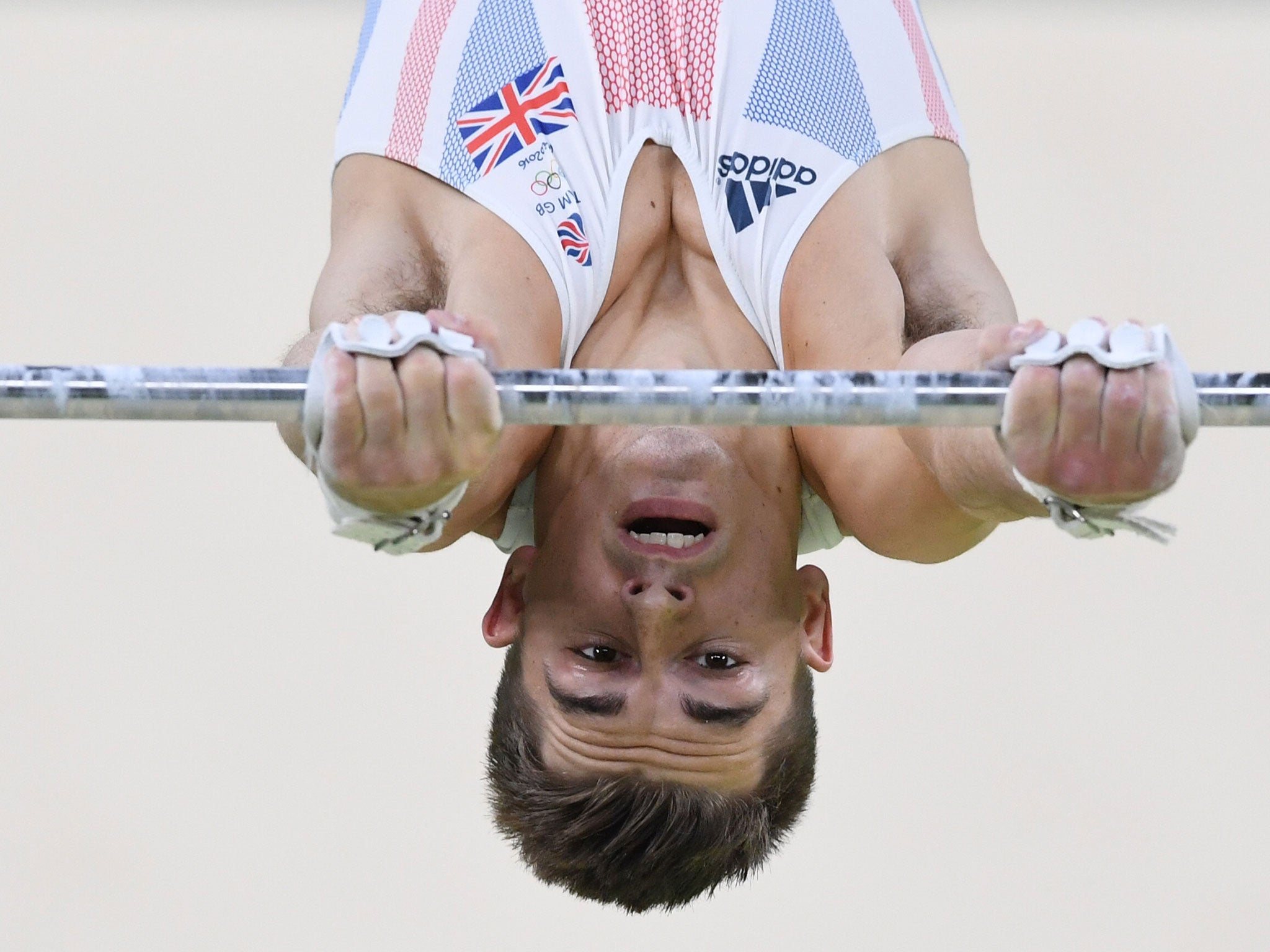Rio 2016: Max Whitlock wins Britain's first men's all-round Olympic gymnastics medal since 1908
Reigning champion Kohei Uchimura claimed a dramatic gold medal with a stunning final performance

Your support helps us to tell the story
From reproductive rights to climate change to Big Tech, The Independent is on the ground when the story is developing. Whether it's investigating the financials of Elon Musk's pro-Trump PAC or producing our latest documentary, 'The A Word', which shines a light on the American women fighting for reproductive rights, we know how important it is to parse out the facts from the messaging.
At such a critical moment in US history, we need reporters on the ground. Your donation allows us to keep sending journalists to speak to both sides of the story.
The Independent is trusted by Americans across the entire political spectrum. And unlike many other quality news outlets, we choose not to lock Americans out of our reporting and analysis with paywalls. We believe quality journalism should be available to everyone, paid for by those who can afford it.
Your support makes all the difference.Well that’s not a bad wedding present. Prime yourself for somersaults down the aisle at Max Whitlock’s nuptials next year with pride of place among the flowers and champagne at the top table devoted to the first British medal by a male gymnast in the all-round event since 1908.
Of course he would have wanted gold or silver, but in this company and given the antecedents contained in a barren century, bronze was precious metal enough. And hard won, authenticated by a finale made gruesome by the insane tension.
Gold and silver were already out of reach, annexed by the brilliant Kohei Uchimura of Japan and Ukraine’s Oleg Verniaiev. Whitlock was first up in the final rotation and posted a chunky 15.2 on the floor. He was now consigned to watch those who might deny him, Russia’s David Belyavskiy plus Cheopan Lin and Shudi Deng of China.
“I didn't know where I was placing. I didn't know any scores of any of the other gymnasts at any point. It wasn't until the end when I was first up so I could watch everyone and it was really tough to be honest.
“When it was just those two (Uchimura and Verniaiev) left it felt amazing. I knew I couldn't do any more so it was just about watching those two and enjoying it. To get all six pieces right is a very tough job and there was a lot of pressure going into today but I had to take it step by step. Before I competed I just said I've got to go for it and that's what I did.”
If the British present belonged to Whitlock, the future is 20-year-old Niall Wilson’s to chase. Wilson outscored his celebrated team-mate in three disciplines and were his pommel nearer the mark he might have been the Briton with his name in lights.
“I’m very pleased, first Olympics, 20 years old, and top eight in the world, I can’t be happier – I’m just loving every second,” Wilson said. “I’m so happy for Max getting bronze. It’s great for all of us, he’s a massive inspiration for me.
“I’ve looked up to him for years and years and fortunately I get to compete alongside him. I said to him at the end that in four years time I will be doing what he’s doing.”
They say sharing success as a group outstrips individual plunder, yet after the disappointment of the gymnastic team event Whitlock had to make the all round final his parade, the world’s top 24 gymnasts competing across six disciplines.
Whitlock began the first rotation with his strongest apparatus, the pommel horse, nailing his routine to take an early lead with a mighty score of 15.75. The rings, his weakest turn, were less emphatic, a foot out of step on landing seeing him drop into second place behind world champion Uchimura.
The Usain Bolt of gymnastics, who claimed five medals four years ago in London and has won six consecutive world titles in this event, started the night as favourite and after two rounds was one of three beginning to distinguish themselves, alongside Whitlock and Oleg Verniaiev.

Whitlock had time to observe Uchimura on the adjacent rings as he waited his turn on the vault. Uchimura was safe but the landing was flawless. Whitlock went for complexity and risk on the vault and though the landing was again marginally off key, the violence of the twists and turns through the air earned him a score of 15.1, bettered by only one at half way.
If there were a criticism to be had of the British effort it lay in the kit design, which looked like the colours had faded in the wash. The weak and insipid result contrasted sharply with the muscularity of the output.
Whitlock had to go to the parallel bars having watched his principal rivals for gold execute brilliantly on the vault. This was becoming as much a mental test as physical. These boys can do this stuff in their sleep in practice, but the sequencing was testing Whitlock to the max. Another minor mis-step on landing saw him slip to third with two to rotations to complete.
Whitlock’s high bar routine was a nerveless harnessing of the laws of physics that ended with as good a landing as he made all night. If only it impressed the judges. A score of 14.7 paled against the 16.1 harvested by Verniaiev on the parallel bars, which, with just the floor exercise remaining, looked good enough for gold.
It was until Uchimura took to the high bar, delivering a performance of towering grace, launching himself backwards through the air before coming to rest as if steered by a precision tool. That’s how you win gold.
Join our commenting forum
Join thought-provoking conversations, follow other Independent readers and see their replies
Comments